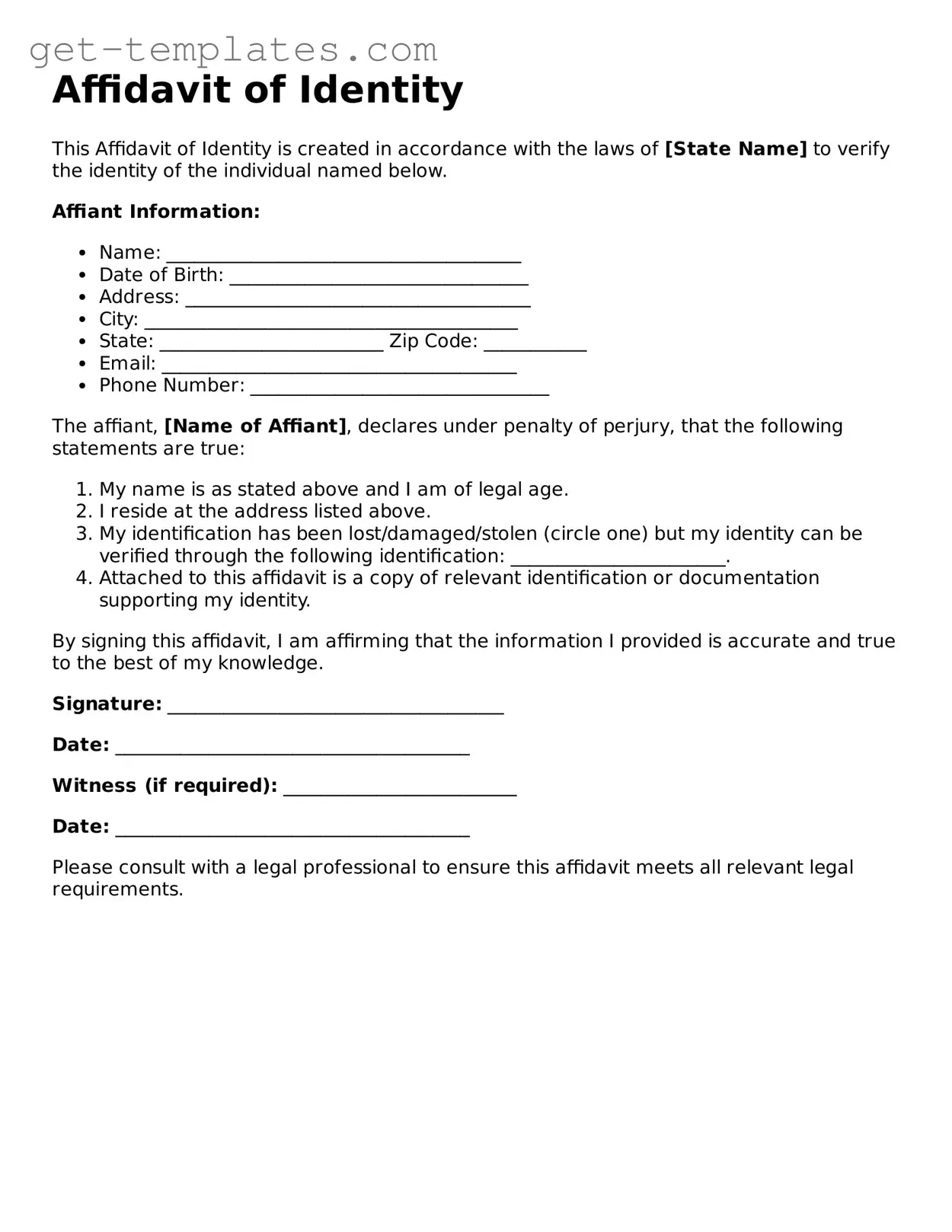Attorney-Approved Affidavit of Identity Form
The Affidavit of Identity is a legal document used to confirm a person's identity, often required in various legal and financial situations. This form serves as a sworn statement, helping to establish that the individual presenting it is indeed who they claim to be. Understanding its purpose and proper usage can significantly ease the process of verifying identity in important matters.
Get Document Online

Attorney-Approved Affidavit of Identity Form
Get Document Online
You’re halfway through — finish the form
Finish Affidavit of Identity online — edit, save, download made easy.
Get Document Online
or
⇓ PDF Form
